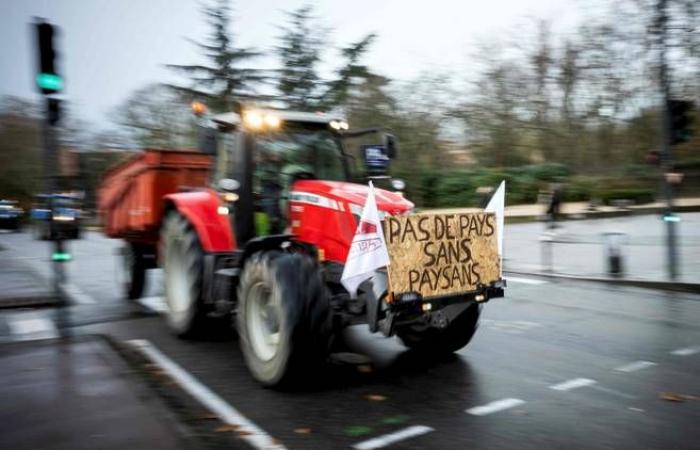After months of protests by farmers across Europe, the Green Party, once the fourth largest party, has lost 19 seats and is now demoted to sixth position in the European Parliament in Brussels.
Pro-agriculture parties now hold more seats than the Greens. This shift suggests that Europeans are increasingly eager to see Europe compete with China and the United States to strengthen its economy.
This week’s political upheaval has been particularly marked in France, Europe’s largest country after Germany.
French President Macron called for early elections for the National Assembly, and the president of Belgium also resigned. Germany is experiencing similar turmoil, with the social democrats relegated to a lower rank.
French President Emmanuel Macron. (Agence France-Presse archives)
The farmers’ revolt, peaking in January and February 2024, affected most EU member states. This revolt is fueled by increasing production costs, foreign competition, falling incomes, environmental restrictions and cumbersome administrative procedures.
In essence, Europe is going through a period of significant turbulence, and it appears that farmers’ voices have finally been heard.
From a food security perspective, the situation in Europe is deteriorating. We have seen a significant shift in regulatory approaches in Europe, leading the continent to move away from exports and focus on self-sufficiency.
For example, Europe’s pork production, one of the most popular animal proteins in the world, has declined by three million metric tons since 2021, representing 25% of total US pork production. Cereal production is also in decline, making it increasingly difficult to feed livestock.
The EU forecasts that overall grain production this season will be 4.3% below the five-year average, not only due to unfavorable weather conditions, but also because farmers feel unsupported and lack incentives. Europe’s struggles have created opportunities for U.S. producers, who are now targeting markets like Korea previously served by Europe. Brazil has also benefited from Europe’s challenges, and Canada should do the same.
Europe less food secure
Extreme agricultural policies that give the state power to control agriculture have made Europe less food secure.
The EU election results will have a profound impact on the continent’s future food security.
Farmers have been burdened by bureaucratic policies and restrictive regulations dictating what they can produce and how they can do it. Government surveillance has reached extremes, with satellite images used to monitor compliance with permitted crops and agricultural activities, triggering automatic notifications when discrepancies are detected. This level of state control is unprecedented.
Even before the elections, the European Parliament was under pressure. Amid growing tension, several environmental regulations, including pesticide rules, have been either diluted or repealed. This relaxation of ecological targets could indicate a broader trend with the new parliament, which could be seen as a positive development.
Undermining farmers and ignoring their expertise is not only reckless but also dangerous for citizens and the economy. It is imperative to restore the dignity of agriculture in Canada.
For effective environmental management, governments must prioritize farmers’ perspectives. Their knowledge is invaluable, surpassing that of vocal NGOs and federally funded entities like the Climate Institute of Canada, which received almost $51 million to amplify the federal government’s current discourse on environmental policies, often to the detriment agricultural communities.






